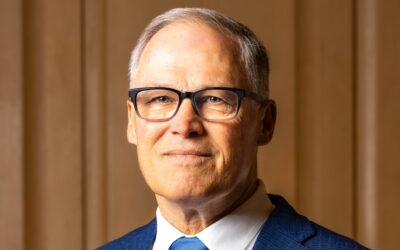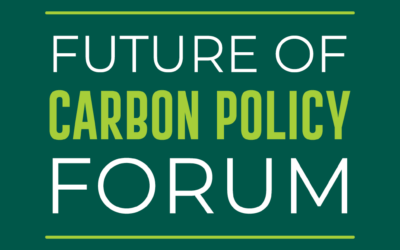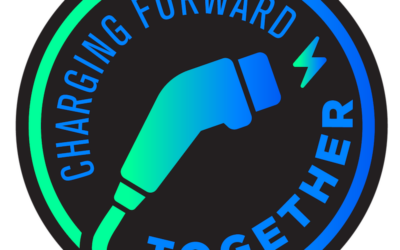All Stories
Announcing the Winner of the Giuliani Clean Energy Entrepreneur Award
Last week inside the Amazon Spheres, Thor Kallestad, CEO of last year’s award winner Myno Carbon, told the crowd of business, community, and public policy leaders about the power of public-private partnerships. His remarks underscored the theme of the just-completed...
Future of Carbon Policy Forum – Gov. Inslee to Speak
On Thursday, January 4th – just four days prior to the start of the 2024 legislative session in Olympia – we’ll gather at Amazon’s Day 1 Building in Seattle to preview a critical year for carbon policy and clean energy innovation.
Headlining the event will be Governor Jay Inslee.
Modern Hydrogen named Giuliani Award Finalist
Modern Hydrogen deploys “pre-combustion carbon capture” technology to remove carbon from natural gas – while producing hydrogen for clean energy use – then buries that carbon in asphalt for paving roads, runways, and parking lots.
Group14 named Giuliani Award Finalist
“Big things are happening fast”, says Group14 Technologies CEO and co-founder Rick Leubbe in an interview with Seattle Inno.
The company commercially manufactures a silicon-carbon anode powder to replace the traditional graphite powder found in most batteries today. The goal is to make batteries cheaper, smaller and longer lasting.
First Mode named Giuliani Award Finalist
In recognition of meaningful advances in Washington-based clean energy innovation and in the spirit of our founder, the 3rd annual David & Patricia Giuliani Clean Energy Entrepreneur Award will be presented on Thursday January 4th at the Future of Carbon Policy Forum.
The award recognizes meaningful advances in clean energy innovation. The inaugural winner was Kenworth Trucks, presented by Governor Jay Inslee. The second winner was Myno Carbon, presented by Commissioner of Public Lands, Hilary Franz.
Future of Carbon Policy Forum – Tribal speakers announced
We have become accustomed to beginning meetings with land acknowledgements and we will certainly do that at our Future of Carbon Policy Forum on January 4th.
But as we acknowledge the tribal ancestry of the lands we occupy and the tribal history of caring for our environment, we’ll also learn from tribal leaders about the clean future they are creating for generations to come.
Future of Carbon Policy Forum – Register Today
Our annual Future of Carbon Policy Forum always sells out. And this year we expect limited available tickets to move fast. (Not “Taylor Swift” fast, but ”Long Story Short”, you want to register today so you can sing “You’re Not Sorry”.)
Charging up the EV surge
The state Transportation Electrification Strategy projects that we will need another million charging ports by 2030 to be on track to meet our carbon reduction targets. Funded by the Climate Commitment Act, the state is making major investments in Zero Emission...
What can Québec teach us about SAF?
The Clean & Prosperous Institute Study Mission delegation that visited Québec City and Montréal flew from Seattle on traditional, “unsustainable” aviation fuel – though the Institute did buy carbon offsets. Will future study mission delegations fly on commercial...








